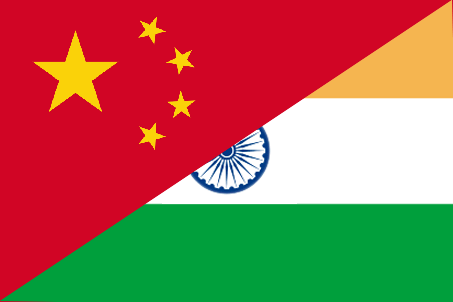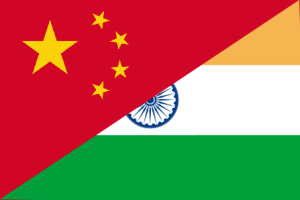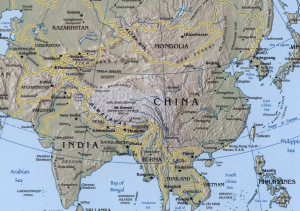The Sino-Indian undemarcated border has long been a source of contention between the two countries. Chinese President Xi Jinping’s recent visit to India on September 17, 2014- the first by a Chinese President in eight years- appears promising. However, it is unclear whether the Chinese are actually trying to improve their relations with India, or trying to get one up on Japan on their investment initiatives.
The Sino-Indian undemarcated border stretches 4,057-kilometer in the Himalayan Mountains. In 1962, India and China went to war over the boundaries of this area known as the Ladakh Plateau. After the Chinese President’s visit to India, hundreds of Chinese and Indian soldiers aligned along the shared border that is the basis of territorial disputes. The alignment of troops on both sides is meant to send a message that neither party is backing down.
On the Indian side of the border, in the province of Arunachal Pradesh, infrastructure development is considerably low compared to the Chinese side of the border. On the Chinese side, there is increased infrastructure, with the intention of demonstrating to those living in the area that the Chinese are the best to serve the people’s needs.
Border disputes are common for China, with disputes often involving other Asian countries such as Japan and the Philippines. Border disputes have threatened trade disruptionsand investment opportunities with these countries, which questions China’s increasing interest in India. It causes one to re-examine where India lines up on China’s priorities.
The economic rise of China and India has pushed for increased mutual cooperation through trade and investment deals. The recent Xi-Modi talks discussed Chinese railway investment projects in India, which add up to sum 100-300 billion $U.S dollars. These investments score much higher than Japan’s recent $U.S 35 billion dollars investment in India. Prior to this, Chinese investment had been somewhat paltry. The Chinese project the completion of their investment projects to be faster and cheaper than Japan, a necessity for India at the moment.
In recent months, India has pursued a more strategic partnership with Japan, discussing issues of defense and civil nuclear cooperation, with Japan pushing for the containment of Chinese expansionism. India has taken a ‘‘decoupled’’ stance with China where ‘‘the management of economic relations, including investment, development, and trade agreements, are independent of broader strategic issues.’’
India is currently making connections with both Japan and China. Japan and India have discussed strategic issues and the containment of Chinese expansionism. With China being the world’s second largest economy, it appears difficult to accept Japan’s offer, which is why India has yet to take a firm stance on the countering China.
Due to the territorial disputes of the Senkaku/Diaoyu Islands, Chinese-Japanese tensions run much higher than that of China and India, and continue to be an ongoing issue for the two nations. For political reasons, both the Chinese and Japanese citizens are finding economic growth and investment difficult in each other’s countries. As a result, China is concerned with the increasing relations between Japan and India. To maintain its dominance in the region, it needs to create vital links with India before the Japanese do. Increasing economic ties is the first step in demonstrating the Chinese commitment to India.






